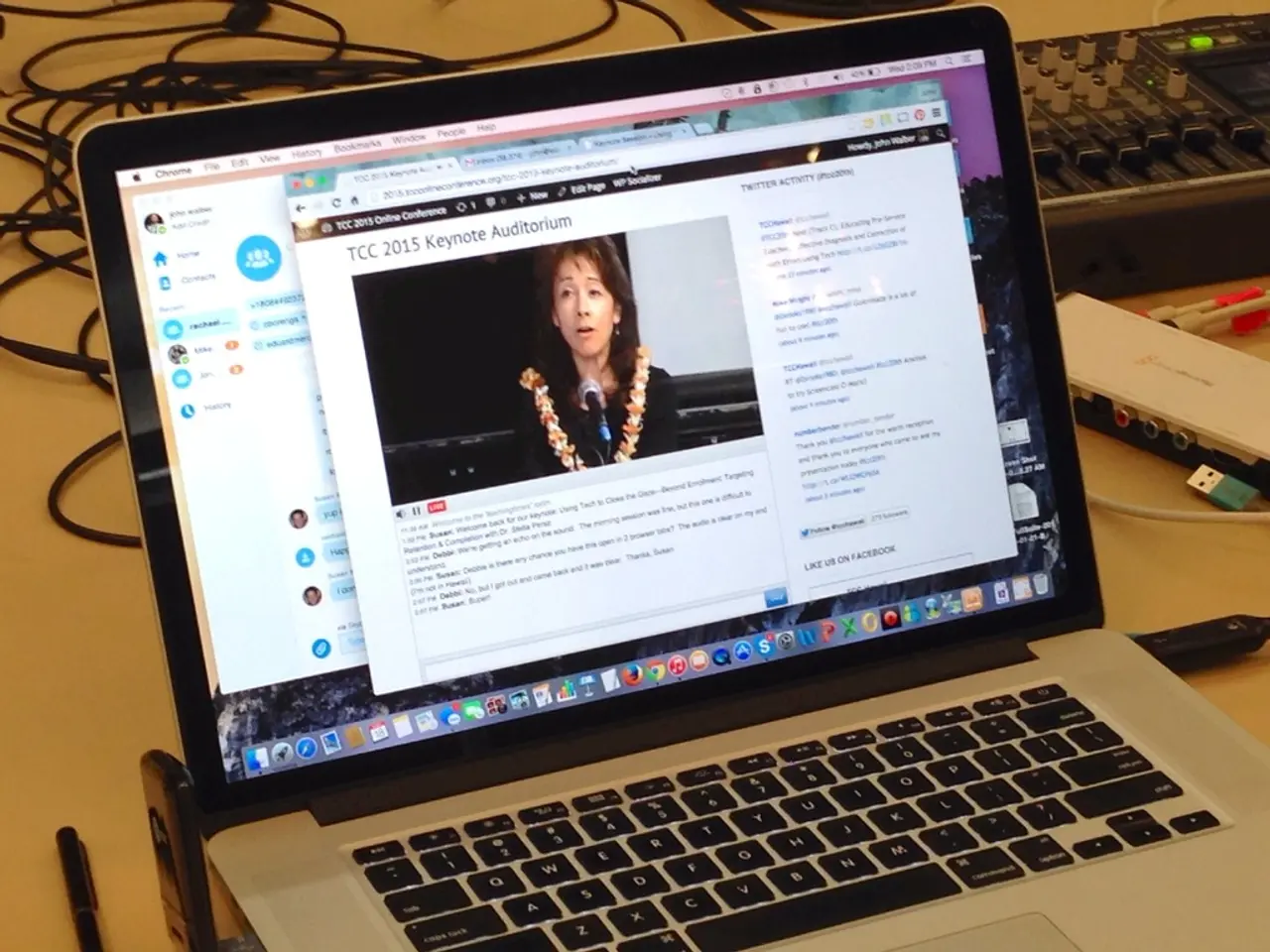Rapid Progress in Asia: Emphasis on Climate Action and Sustainable Fleet Reporting
Japan is taking a proactive role in promoting decarbonization within the Asia Zero Emission Community (AZEC), a regional coalition dedicated to reducing greenhouse gas emissions. The Ministry of Economy, Trade and Industry (METI) is spearheading these efforts, hosting key meetings like the AZEC Senior Officials Meeting (SOM) and showcasing AZEC at international energy events. These activities focus on policy coordination and project implementation to support decarbonization in Asia [1].
One of the key initiatives under AZEC is the AZEC Senior Officials Meeting (SOM), which brings together senior officials from partner countries to discuss decarbonization outcomes and future plans. The meeting involves stakeholders like the ASEAN Centre for Energy (ACE) and the International Energy Agency (IEA) [1]. Another initiative is public-private partnerships, such as CEFIA25, which deepen decarbonization projects by involving both public and private sectors in promoting sustainable energy pathways [2].
The impact of these efforts on fleet management in the region is significant. Japan's initiatives under AZEC are likely to influence the transition to electric, hydrogen, and biofuel-powered vehicles by promoting regional policies that support the adoption of alternative fuels and vehicles, standardizing regulations across countries [1]. They also encourage public-private investments, helping mobilize resources needed for the development of infrastructure like charging stations for electric vehicles and hydrogen refueling stations [2].
By 2030, the total number of electric vehicles (EVs) on the roads in Southeast Asia is expected to exceed 10 million units, a tenfold increase from current levels [3]. Japan produced 10 million metric tons of hydrogen in 2021 and aims to grow this significantly over the next decade [4]. Hydrogen-powered vehicles are anticipated to gain market share, particularly in sectors such as public transportation and logistics [4].
Emissions tracking will likely become mandatory for all companies operating within the AZEC framework by 2030 [5]. Purchasing decisions will focus on vehicles that offer lower emissions and better fuel economy [5]. Japan's decarbonization strategy includes the development of carbon capture and storage (CCS) technologies for industries and thermal power plants [6].
However, specific details on how these efforts are directly impacting fleet management in terms of the transition to electric, hydrogen, and biofuel-powered vehicles are not explicitly outlined in the available information. The broader strategy seems to be setting the groundwork for such transitions through policy and infrastructure development.
Asia's greenhouse gas emissions rose by nearly 6% annually between 2010 and 2019, primarily due to an increased reliance on coal and natural gas [7]. AZEC aims to reduce carbon emissions across three critical sectors: electricity generation, transportation, and industry [8]. The transport sector accounted for nearly 30% of these emissions, while industrial activities added another 35% [9].
AZEC is focusing on creating a supply chain for sustainable aviation fuels and biofuels [8]. Indonesia proposed over 400 sustainable fuel projects at the AZEC meeting in August 2024, including the production of SAF from coconut oil [10].
Japan is implementing its emissions reporting system across Southeast Asia, requiring businesses emitting more than 1,500 kiloliters of CO2 annually to report their emissions [11]. Approximately 12,000 Japanese companies currently fall under this mandate, and similar criteria are expected to be applied across Southeast Asia as these countries adopt Japan's reporting framework [11]. Japanese startups such as Zeroboard and Asuene are helping companies across Asia visualize and report their carbon emissions [11].
In conclusion, Japan is leading the decarbonization agenda across Asia within AZEC, setting the stage for a transition to cleaner, more sustainable energy sources in the transportation sector. The focus on policy coordination, public-private partnerships, and infrastructure development is expected to drive the adoption of electric, hydrogen, and biofuel-powered vehicles, while emissions tracking and reporting will help ensure accountability and progress towards decarbonization goals.
Sources: 1. https://www.metsi.go.jp/en/policy/international/asec/ 2. https://www.metsi.go.jp/en/policy/international/cefia/ 3. https://www.metsi.go.jp/en/policy/international/asec/ 4. https://www.metsi.go.jp/en/policy/international/hydrogen/ 5. https://www.metsi.go.jp/en/policy/international/asec/ 6. https://www.metsi.go.jp/en/policy/international/ccs/ 7. https://www.metsi.go.jp/en/policy/international/asec/ 8. https://www.metsi.go.jp/en/policy/international/asec/ 9. https://www.metsi.go.jp/en/policy/international/asec/ 10. https://www.metsi.go.jp/en/policy/international/asec/ 11. https://www.metsi.go.jp/en/policy/international/asec/
- The AZEC Senior Officials Meeting, spearheaded by METI, involves discussions about decarbonization outcomes and future plans, including the transition to electric, hydrogen, and biofuel-powered vehicles.
- Public-private partnerships, like CEFIA25, deepen decarbonization projects in Asia by promoting sustainable energy pathways, supporting the adoption of alternative fuels and vehicles.
- By 2030, the number of electric vehicles on Southeast Asian roads is expected to exceed 10 million units, and Japan aims to significantly grow hydrogen production for hydrogen-powered vehicles.
- Emissions tracking will become mandatory for companies in the AZEC framework, and purchasing decisions will focus on vehicles with lower emissions and better fuel economy.
- Japan's decarbonization strategy includes the development of carbon capture and storage technologies for industries and thermal power plants.
- Asia's greenhouse gas emissions have been rising due to an increased reliance on coal and natural gas, and AZEC aims to reduce carbon emissions across electricity generation, transportation, and industry sectors.
- Japanese startups, such as Zeroboard and Asuene, are helping companies across Asia visualize and report their carbon emissions, contributing to the AZEC's decarbonization goals.




